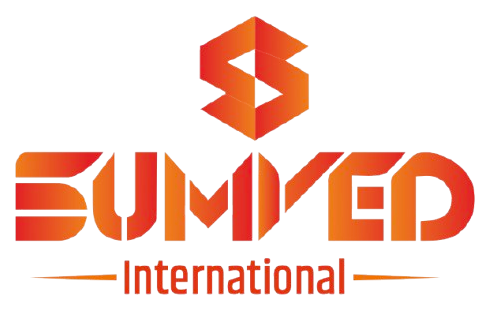
Taking Out The Guesswork & Ensuring Peace Of Mind
- We understand that the day-to-day running of your facility takes precedence, and compressor servicing can take a back seat.
- Here’s the information you need to remove the guesswork and ensure complete peace of mind.
- Below are some of the most frequently asked questions.
Servicing & Replacement
How often should a compressor be serviced?
Recurring maintenance intervals depend on operating hours and time in service. Even if hours aren’t reached within 6–12 months, a service is still required due to ageing parts and filters. Observe the plant-specific intervals; the minimum is once per year.
How often must I change my compressed air filter (oil, air, fine separator, mains)?
It depends on the filter type and function, but elements are typically changed every 6 months, or at least every 12 months.
Why should I replace my filter element regularly?
Regular replacement maintains continuous high-quality compressed air and helps reduce energy costs.
How often must the oil be changed?
Often aligned with recurring maintenance. As a guide: mineral oil ~4,000 operating hours; synthetic oil can usually run about twice as long. Installation and suction conditions may alter intervals. When in doubt, perform a lab oil analysis.
What kind of oil should I use?
Use compressor oil approved by the plant manufacturer. For oil-lubricated screw systems, oil must cool, compress, lubricate, and then separate cleanly. Depending on application, mineral, synthetic, or food-grade oils may be suitable.
When do I have to replace the compressor stage?
In oil-lubricated screw compressors, bearing wear is expected. Bearing makers specify ~35,000 operating hours; we recommend preventative bearing exchange at that point. Assure Service Agreements/Warranty regulate this preventive exchange.
Servicing Agreements & Monitoring
Can I obtain a bespoke service agreement for my compressor?
Yes. Every compressed air system has unique needs. We can tailor scope so operational reliability and operating costs are controlled.
Is there a monitoring system for the compressors?
Yes. Our iConn service monitors compressor operating conditions for 24/7 visibility. Ecoplant uses AI to maximize system efficiency.
How long is the lifetime of a compressor, and how can it be extended?
Service life depends more on operating hours than year of manufacture. Evaluate ecological/economic benefit of replacement versus upgrades (e.g., heat recovery, higher-efficiency motors).
Compressor Testing
When do I have to carry out a pressure vessel test?
Per the Ordinance on Industrial Safety and Health (BetrSichV): visual inspection every 5 years; pressure test every 10 years.
If the pressure-volume product (max permissible pressure × tank volume) is < 1000 L, a competent person can perform the test. If > 1000 L, an approved inspection body (ZÜS) expert such as TÜV or DEKRA must perform it.
Do I have to take a DGUV 3 test at the plants, and if so, when?
DGUV 3 covers electrical systems/equipment used commercially. Recurring inspection for compressors is based on risk assessment; typically every 4 years and can be done with scheduled maintenance.
Energy Saving
Can I retrofit a heat recovery system on my old compressor?
Generally yes. Heat recovery is highly effective for energy savings by repurposing compression heat. Design must be agreed to ensure safety and efficiency.
Should I switch off the refrigeration dryer after production to save energy?
Switching off unused consumers is sensible, but refrigeration dryers need pre-run time to cool before capacity is available. As a precaution, switch on ~30 minutes before the compressor. If this can’t be ensured, keep the dryer on; the cost of removing resulting condensate can exceed any savings.
General Questions
Why does the compressor tank heat up?
Heat is a natural by-product of compression. The process warms the compressed air and oil, heating the tank.
How much compressed air can flow through a pipe?
It depends on material, conditions, and pipe diameter. See CompAir’s EPL Piping specifications: https://www.compair.com/en-gb/products/epl-piping
Can an air compressor explode?
Compressed air can be dangerous if used/maintained incorrectly. High pressure means sudden decompression is possible in case of defect. Follow all safety guidance.
Can the container of an air compressor be welded?
Pressure vessels supplied by CompAir are certified. Any welding must be carried out by an ASME-certified welder.
Does the operation of an air compressor produce carbon monoxide?
Electric compressors don’t produce CO, but may ingest ambient CO if present. Always follow applicable regulations.
Does a compressor filled with compressed air weigh more?
Yes. Never move or work on compressed air equipment while under pressure or connected to power.
Any other questions? Please contact us and one of our experts will be happy to help.
20+ years of providing Compressed Air Systems and Services with Exports to Asian subcontinent, African, Middle East & SE Asian Countries.
Phone
+(91) - 8014306318
+(91) - 9082038448
+(91) - 9022666776
sales@sumved.in
info@sumved.in
exports@sumved.in
Address
C-16,Punit Indl Estate,Plot No. D11/11A, Thane Belapur Road,MIDC, Turbhe, Navi-Mumbai. -400705 Maharashtra, India.
All Rights Reserved to Sumved International
